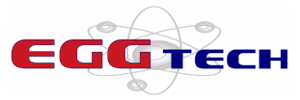– a Fertility Question
By Jamie Anderson, MA Physiol (Oxon)
With a huge range of supplements claiming to enhance stallion fertility, choosing the right one to help your stallion might seem like a bit of a minefield. However, a look through the scientific literature reveals some rather interesting facts.
Typically, because of the costs of research, fertility supplements for equines are generally based on supplements designed for use in humans. However, there are no guarantees that these supplements will have any effect when used in a different species. The typical minerals and nutriceuticals associated with fertility in human males, such as selenium, zinc, antioxidants etc. are often included and scaled up for stallion supplements. Do these components actually improve stallion fertility?
Well, there is a startling lack of scientific evidence to support the use of any of these supplements in stallions. In fact, a 2008 paper (Deichsel et al, 2008) which looked at the effects of a commercial antioxidant supplement designed to improve fertility in stallions, found no improvements in semen characteristics from using the supplement. The researchers’ findings suggested that use of “…a supplementary diet with antioxidants … does not result in pronounced effects on semen quality of stallions. It is therefore questionable to support stallions with dietary antioxidants as long as they receive an adequately balanced basal diet.”
L-carnitine, an amino acid, is associated with improving fertility in a number of species. There is limited evidence (Stradaioli et al, 2004) that supplementation with l-carnitine may improve semen characteristics in stallions with poor quality semen, and low associated fertility. It does not appear to improve semen quality or fertility in other stallions.
Selenium is one of the more questionable and possibly dangerous supplements that are sometimes given to stallions. Firstly, selenium deficiency has not been shown to be effect stallion fertility, but perhaps more importantly, selenium toxicity (even a minor “overdose”) has been shown to cause a range of very unpleasant side effects in equines, including a reduction in fertility in stallions.
Zinc has been associated with improved semen parameters in humans, but no scientific evidence to suggest that it might affect stallion fertility.
However, there is one supplement which appears to be beneficial in equines as well as humans. One of the current buzzwords in human medicine and agriculture is omega-3 fatty acids. Almost everyone will be aware of the potential health benefits of omega-3, and this is evidenced by the huge number of people who take fish oils as a source of omega-3 fatty acids. And for once, this supplement appears to have positive (and proven) on fertility in stallions.
Several research groups have demonstrated the beneficial effects of dietary supplementation with Omega-3 (in the form of docosahexaenoic acid a.k.a. DHA) on stallion fertility. These include increased sperm output, increased percentage of morphologically normal sperm cells, improved progressive motility before and after cooled transport, and improved freezability. It is theorised that increasing DHA in sperm could increase the fluidity of the sperm membrane, and therefore increase the sperms tolerance of cooling and freezing. Whatever the reason, DHA is one of the only supplements that has been repeatedly proven (and the research published in peer-reviewed journals) to improve sperm parameters associated with fertility.
If you’re going to give any “fertility boosting” supplement to your stallion, remember that as it takes about 57 days to make each sperm cell, that it will take around two months for it to work. There are several DHA-type supplements on the market, and it’s relatively cheap (with a two month supply of most oils costing around £25), so it’s well worth a go. You can monitor the semen quality yourself if you’re set up for collecting semen, so it’s something you can measure directly too! Hopefully we will see even more research about DHA supplementation, and other nutriceuticals, over the coming years.
© 2012, Equine-Reproduction.com LLC
Use of article permitted only upon receipt of required permission and with necessary accreditation.
Please contact us for further details of article use requirements. Other conditions may apply.


